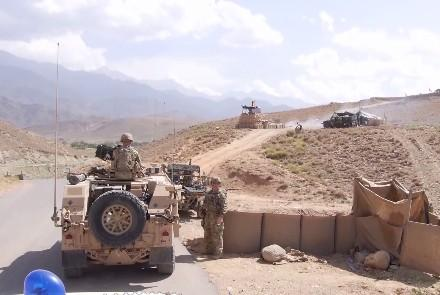A New Exit Strategy for Washington?

The latest US initiatives on Afghanistan, especially Washington’s 8-page draft “Afghanistan Peace Agreement,” are quite remarkable. They come perilously close to treating Afghanistan as a colony of the US, and in their intrusiveness into the fine detail of Afghan constitutional affairs, they remind one of the notorious demands sent to Serbia by the Austro-Hungarian Empire on the eve of the First World War.
The US political system is not exactly functioning in an exemplary fashion, but one wonders how President Biden would feel if a US “ally” circulated a plan that called for dumping the US Constitution and setting up a “Peace Government” requiring Biden to share power with the extremists who invaded the Capitol on January 6th. Beyond concerns over that issue of “principle” – which seems to weigh more heavily with the Europeans than with Washington – there are several specific proposals in the text (with the square bracketed texts functioning as alternatives) that appear to reflect the influence of haste rather than thought.
First, the draft states that “All elections to be held pursuant to the current Constitution are cancelled during the tenure of the Peace Government. [An Afghan election commission will be established to administer] [An international election management body will be invited to administer] free and fair national elections following the ratification of a new Constitution.” There is no “international election management body” currently in existence that could play such a role – something one might have hoped the US would have known – and the prospects are close to zero of establishing a new “Afghan election commission” with the professional capacity and the perceived neutrality required to perform such a challenging and potentially-explosive task in a credible fashion in the foreseeable future. If a democratic system is one which gives ordinary people an institutionalized opportunity to change their rulers without bloodshed, “democracy” could in practice be one of the first victims of this proposal.
Second, the draft proposes that “The Afghanistan Independent Human Rights Commission established pursuant to the current Constitution shall remain intact and will be expanded to include [Taliban representation] [x members appointed by the Taliban].” Given that the Taliban are widely suspected of having been involved in the assassination in June 2020 of staff of the Commission, this would likely be seen at best as a US move to protect the Taliban’s human rights record from receiving the scrutiny it deserves, and at worst as an insult to the memory of those who have lost their lives in brutal attacks on civilians – in effect terrorist attacks – which the Taliban have carried out.
Third, the draft states that “The Taliban agree to remove their military structures and offices from neighboring countries, and they agree to end military relations with foreign countries. Also, the Taliban commit that they will not expand their force configurations nor recruit new fighters.” Verification mechanisms for this provision are virtually non-existent, and without such mechanisms, commitments of this kind would be meaningless. Here, it is worth recalling a story from 1988 about Pakistani leader Zia ul-Haq – reported by former US Secretary of State George Shultz – following Pakistan’s signing of the 1988 Geneva Accords on Afghanistan: “I heard the president ask Zia how he would handle the fact that they would be violating their agreement. Zia replied that they would ‘just lie about it. We’ve been denying our activities there for eight years.’”
Fourth, the proposed “Ceasefire Commission” is hauntingly reminiscent of the “International Commission” for which provision was made in the disastrous September 1938 Munich Agreement. As Telford Taylor put it in his definitive book on Munich, as things turned out, to the British and French signatories of the Agreement, “the International Commission was little more than a face-saving device.” It is worth recalling that the United Nations Good Offices Mission in Afghanistan and Pakistan (UNGOMAP), which existed from May 1988-March 1990 and was tasked with receiving complaints about violations of the Geneva Accords, proved to be entirely ineffectual; it was simply a theatrical prop. The proposed Ceasefire Commission has no real teeth, and no provision for international action in response to ceasefire violations.
Beyond this, there is one striking feature in Secretary Blinken’s letter to President Ghani. According to Secretary Blinken, the aim of the proposed “senior-level meeting of both sides in the coming weeks” would be “to finalize a peace agreement.” The sobering lesson of past experiences is that when parties that remain far apart are bludgeoned into a “fast-tracked” agreement by outside powers, the risk that the “peace agreement” will unravel dramatically in the implementation phase is quite extraordinarily high. Hope is a poor foundation for stability in a country as wounded as Afghanistan, as the wishful thinking that accompanied the February 29, 2020 Doha Agreement made clear. One wonders whether the new administration has learned anything at all from the failure of Dr Khalilzad’s earlier efforts. In sum, the new initiative remains very much an exit tool for the US, and the efforts to package it as more than a managed sacrifice of the dreams of a new generation of modernist Afghans are not very convincing.
